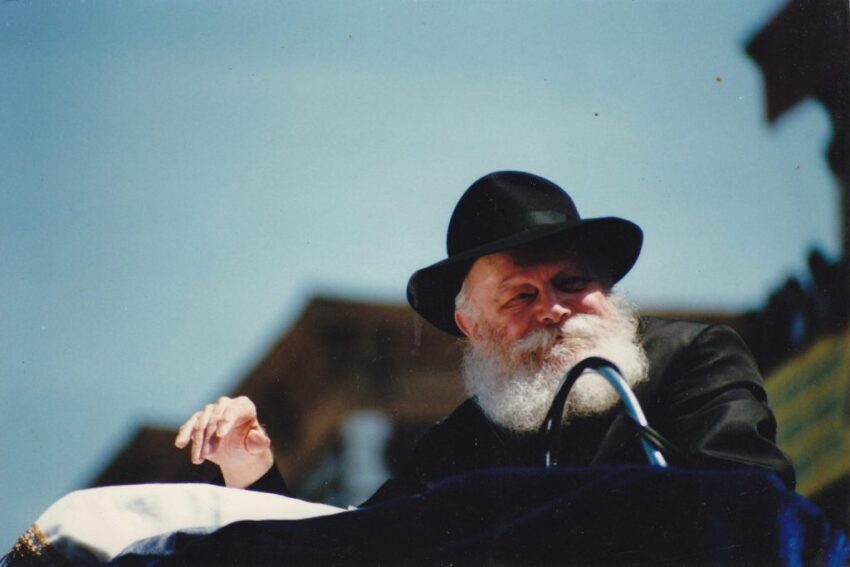
A few months ago, my son searched my old files and found a treasure: a copy of a letter written in 1980 by the Rebbe, Rabbi Menachem Mendel Schneerson, to a doctor in Carlsbad, New Mexico. It was a special discovery, because after consulting a team of scholars dedicated to publishing the Rebbe’s English letters, we realized this letter had never been previously published.

In it, the Rebbe wished him a sweet new year and responded to his inquiry to learn more about the precious stones of the breastplate worn by the High Priest in the Holy Temple. This topic is mentioned in the Bible several times, explained in the Talmud and many rabbinic sources, and the Rebbe elaborated on a beautiful and practical lesson to be learned from it.
When my family established a permanent Chabad presence in El Paso several years later, this Jew from Carlsbad participated periodically in our programming, and we visited him in his home. He shared a copy of this precious letter with my father, who gave me a copy when I was a teenager, but its significance and broader message only became clear to me now.
The Rebbe received piles of mail daily, and his response output is legendary. He corresponded with people of all walks of life on every topic imaginable. When a Jew living in a remote town expressed an interest in learning more about an exotic topic in Judaism, he felt comfortable reaching out to the Rebbe, who invested precious time in providing a personal response.

I appreciated this idea through my experience of a two-week tour through Southwest Texas in the summer of 2005 to connect with fellow Jews as part of Chabad’s “Roving Rabbis” summer program, established by the Rebbe in 1941.
We arrived in the triangle of West Texas towns of Marfa, Alpine and Fort Davis, without knowing what or who we would find. The handful of Jews we met were delighted to see us, and while driving up Route 90 back to Interstate 10, we listened to a recording of the Rebbe where he defined the ethics of Jewish leadership from an episode with Moses.
Before becoming the iconic Israelite leader, Moses worked as a shepherd and one day noticed that one scrawny little sheep had gone missing. He searched high and low until he found it near a stream of water and returned it to the flock. At that moment, he noticed the miraculous sight of a thorn bush ablaze without being consumed. As he approached to investigate, G-d spoke with him and sent him on a mission to free the Israelites from Egyptian slavery. The rest is history.
“Moses became a leader only once he displayed tremendous dedication to even one seemingly insignificant sheep,” the Rebbe explained. “This is what Jewish leadership is all about.”
It was a surreal and memorable experience to hear such a powerful description of the Rebbe’s raison d’être while serving as his emissaries to find “runaway” Jews in the Southwest Texas wilderness in the most tangible way.
Discovering this letter to the Jew in Carlsbad, a town with a handful of Jews, taught me once again how connected the Rebbe was with even the most seemingly disconnected Jews.
We can all be leaders by embodying the attitude of helping anyone in need, regardless of position or time constraints, and appreciating that even the simplest gesture can impact the entire world.
The Rebbe often quoted Maimonides, the famous 12th-century Jewish leader, philosopher, physician, and scholar, who declared that we must all view ourselves and the world as an equally balanced scale of good and bad. One single good deed that one individual does, one positive spoken word, or even a good thought, can tip the scales for the entire world to usher in an era of eternal peace and tranquility.
On Sunday, June 29, we observe the 31st anniversary of the Rebbe’s passing. It is an auspicious time to reflect on how we should value the significance of every person and every good deed, increase our acts of goodness and kindness, and encourage others to do the same.
Levi Greenberg is associate rabbi at Chabad Lubavitch of El Paso.
The post Opinion: The smallest good deed can change the world appeared first on El Paso Matters.
 Read: Read More
Read: Read More




